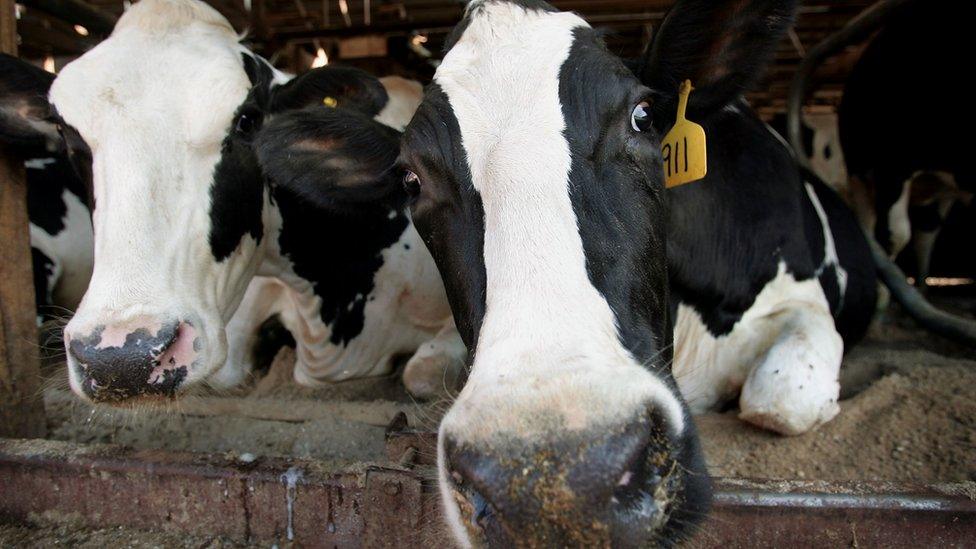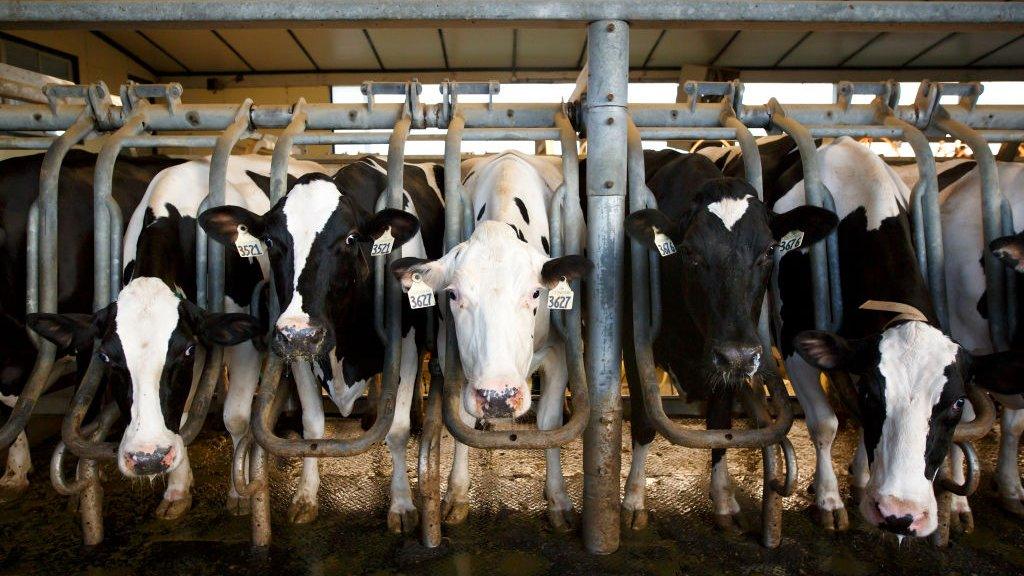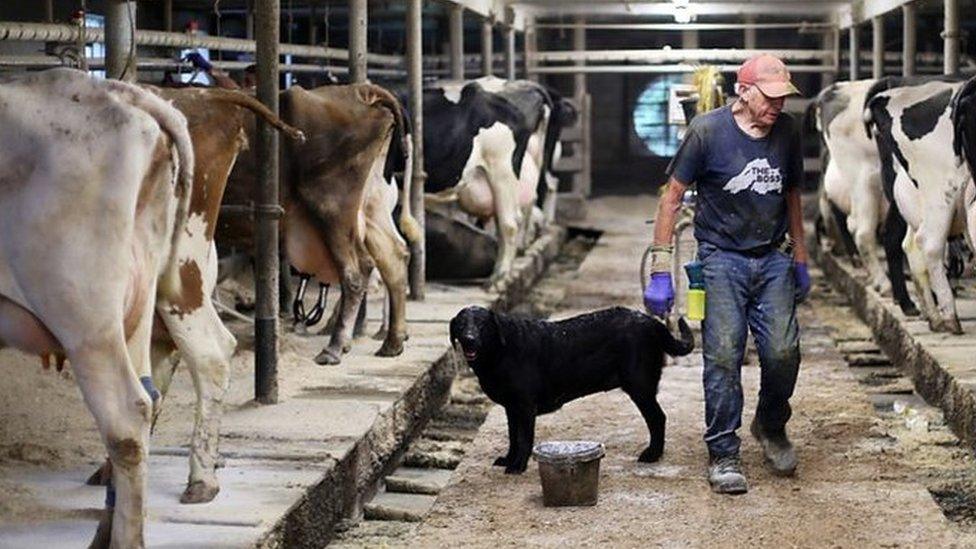Buttergate: Why are Canadians complaining about hard butter?
- Published

Stock photo of butter being spread on bread
Something is amiss with Canadian butter, according to local foodies, who have been arguing for weeks that their blocks are harder to spread than usual.
These so-called "buttergate" anecdotes have been spreading online, with many Canadians complaining that their butter does not soften at room temperature.
Food experts have churned up palm fat in cow feed as a likely culprit.
The dairy industry insists the claims are unfounded, but has created a working group to seek answers.
Buttergate began with a question posed on Twitter by Canadian cookbook author Julie Van Rosendaal: "Have you noticed it's no longer soft at room temperature?"
Hundreds of home cooks responded with similar butter woes.
Allow X content?
This article contains content provided by X. We ask for your permission before anything is loaded, as they may be using cookies and other technologies. You may want to read X’s cookie policy, external and privacy policy, external before accepting. To view this content choose ‘accept and continue’.
Ms Van Rosendaal suggested in a Globe and Mail column, external last week that a higher demand for butter in the pandemic led to changes in livestock feed, as farmers sought to increase production.
Demand certainly has been on the rise during the pandemic.
The country's dairy sector - a major presence in all 10 provinces - determines its production quotas based upon demand forecasts. With more Canadians staying home, demand for butter rose by over 12% in 2020, according to Dairy Farmers of Canada.
Adding palm oil-based energy supplements to cow feed is a decades-old practice said to increase the milk output of cows and increase the milk's fat content.
Since the summer, hundreds of farmers around the country have stepped up their use of palm oil substances in an attempt to boost supply.
Canada's Dairy Processors Association told Real Agriculture there have been no changes to butter production itself nor national ingredient regulations.
Little research has been done on the true impact of palm oil in dairy, but agricultural experts say butter made from cows fed with palm oil has a higher melting point and, therefore, may be harder to spread at room temperature.
"A Buttergate is not what the industry needs, or what Canadians deserve," wrote Sylvain Charlebois, senior director at Dalhousie University's Agri-Food Analytics Lab, in a widely published opinion piece, external this week that argues most of the country's butter has definitely gotten harder.
Mr Charlebois said that palm fat is a legal ingredient in dairy cow feed, but research shows palm oil can increase heart disease risk in people.
Its production also harms the environment, he said, making it an "ethically questionable" practice for the dairy industry, which Mr Charlebois notes is heavily reliant on the Canadian government and, by extension, taxpayers.
"Let us hope the dairy industry can clean itself up before its moral contract with Canadians is permanently damaged," he concluded.
Responding to the complaints, the Dairy Farmers of Canada lobbying group released a statement on Friday arguing palm products "help provide energy to cows and no undesirable effects have been identified arising from its use in cows' feed rations".
They also noted that farmers in other countries, including the UK and United States, also use palm product supplements.
The group said it would nevertheless assemble an expert committee - composed of various dairy stakeholders, including consumers - to address the concerns.

You may also be interested in
The plight of a dairy farm
Related topics
- Published6 April 2020

- Published22 January 2019

- Published23 July 2019

- Published15 August 2019
